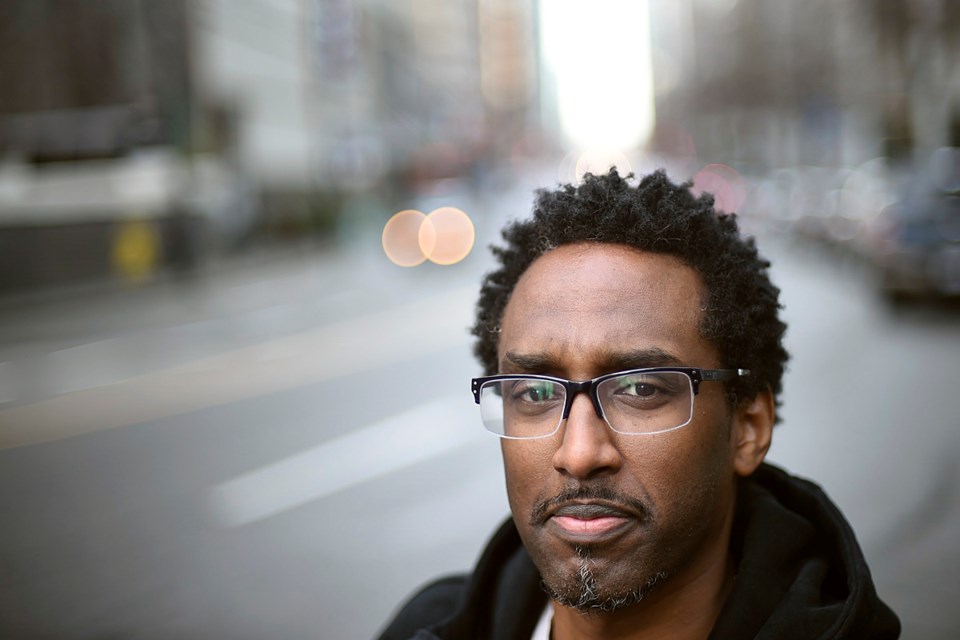Israel has just approved a plan to bring what are believed to be the last 9,000 Ethiopian Jews to Israel. It will be the culmination of several decades of migration that has seen an ancient Jewish community in the east African country completely relocated.
The airlift will have particular relevance to one Vancouver man. Doron Yona’s grandfather was one of the first Ethiopian Jews to travel to Jerusalem and would later lead many of his Ethiopian coreligionists in a mass migration to the Jewish state. It is a tale of astonishing transitions and the coalescence of two streams of Jewish life that had been separated, possibly for millennia.
Yona will share his grandfather’s story this weekend at Limmud Vancouver, a festival of Jewish learning that is now an annual event in Vancouver and more than 60 other locations worldwide.
Yona’s grandfather, Yona Bogale, was born in 1908 in the village of Wolleka, Ethiopia, one of the population centres for Beta Israel, as the Ethiopian Jews call themselves. He was descended from a line of Jewish tradition that is not reliably traceable. Some say the Ethiopian Jews migrated around the time of King Solomon, 3,000 years ago. Other scholars suggest they congregated in the area more like 1,500 years ago, living in about 500 villages throughout the north of the country. In either case, the “discovery” in the early 20th century of a people in Ethiopia scrupulously following Jewish religious texts and practices piqued more than a little interest among other Jewish communities, as well as sociologists.
We have all heard the stories of “specimens” of humanity being snatched by European explorers and turned into circus-like museum exhibits. Yona is careful to insist this is not what happened with his grandfather. Yona Bogale was taken from his village around the age of 13 to Jerusalem.
“Generations on they had dreamed to come to Israel but they couldn’t,” Yona says. “It was only in a fantasy. So to come, not just to Israel, but to Jerusalem, you made a dream come true for people that didn’t have a chance to see that. Of course it was something very, very exciting.”
Still, Yona says his grandfather had to pressure his parents to let him go, but that this may have been made easier by the fact that a few of the village’s teachers had already made the move. Bogale spent most of a decade receiving a traditional Jewish education there, as well as in Germany and Switzerland.
After his studies, Bogale would return to Ethiopia and lead a constellation of Jewish schools that educated a largely illiterate population as they began a shockingly rapid interface with a larger Jewish world that was itself on the cusp of tectonic change.
For generations, Yona says, the Jews of Ethiopia has spoken of, dreamed of and prayed for Jerusalem. For his grandfather, and those first few members of Beta Israel to see the holy city, it was the culmination of an ancestral dream.
It was one of the things the Jews of Ethiopia shared with their disconnected cousins around the world: a centuries-old longing and prayer to return to the land from which they were dispersed in Roman times.
“The Jews of Ethiopia, they prayed for so long to come to Israel,” says Yona. The state of Israel was created in 1948 and a million Jews from throughout the Middle East and North Africa moved there — some willingly, many more expelled by governments or forced into exile by anti-Semitic violence. But Ethiopian Jews largely remained where they were until the 1970s when circumstances there began to deteriorate.
Yona’s mother moved to Israel in 1956, among the very first in what, by the end of the 20th century, would become a wave of migration. His grandfather and father came in 1971. Yona Bogale, who died in 1989, became a renowned leader in the Ethiopian Jewish community in Israel.
A series of airlifts brought migrants, including Yona’s now-wife, at the height of the Ethiopian famine in 1984, and during political upheaval in 1991. There are now about 125,000 Ethiopian Jews and their descendants in Israel.
But things are not perfect. Though legally equal, discrimination against black citizens remains and Ethiopian-descended Israelis earn less than the national average. Despite his family’s prominence in the migration of Jews from Ethiopia to Israel, Yona and his wife decided four years ago that life would be better in Canada for themselves and their two young children.
Given that the Ethiopian Jews managed for centuries of isolation to continue their traditions, is there any sense of loss as the last of those move to Israel and, inevitably, become absorbed in that vast ethnic and cultural melting pot? Yona is not nostalgic. “Nobody will say that he regrets that he came to Israel,” he says. “No one will say that. They are so proud of who they are, where they are… To come to Israel… it was a dream.”
@Pat604Johnson



